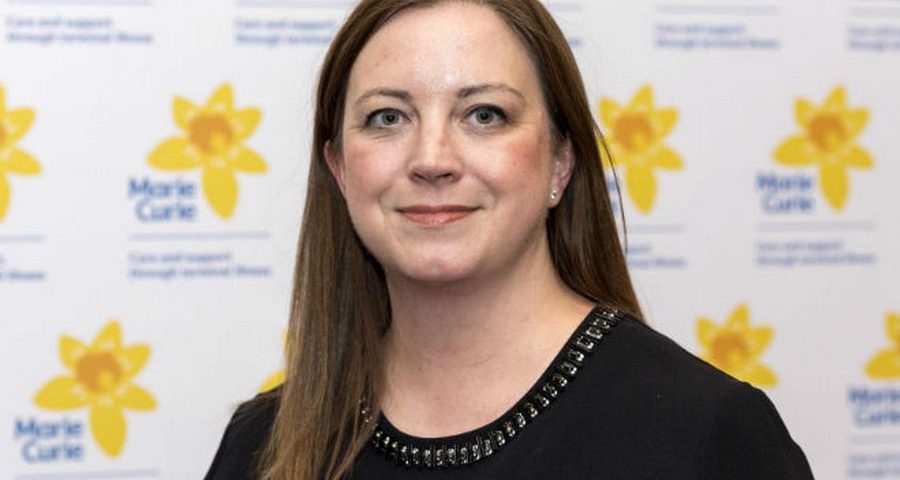
Your Voice: civil society in Central and Eastern Europe is rapidly changing
February 7, 2018
Your Voice: We need greater diversity in fundraising
March 21, 2018Trustee engagement can make a real difference to an organisation’s fundraising success, says Meredith Niles, executive director of fundraising and engagement at Marie Curie. Speaking as both a fundraiser and trustee, she shares her tips on how to appropriately and effectively engage charity trustees.
In my day job, I have the privilege of leading a team of high-performing fundraisers. But, I have also served for many years as a charity trustee – within charities where the fundraising programmes have ranged from entirely nascent to very well-established. Seeing what works from an executive and non-executive perspective, I can honestly say that when trustees are truly engaged with the organisation’s fundraising programme, it can make a real difference to performance and, of course, staff morale. So, how do you get your trustees on board with fundraising?
If you’re a professional fundraiser whose board is struggling to strike the right balance between support and challenge (or even if you’re stuck at trying to get your trustees to notice you), I’d love to share with you my top tips for healthy board engagement. They are:
Enlist an advocate
If the staff are the only ones who think the board needs to engage more/better/differently with fundraising, it will be difficult indeed to get the trustees on board. Finding a trustee who can lead by example and bring their peers with them will make the task far easier. (This is one of the reasons I am so passionate about getting more professional fundraisers to serve on charity boards.) It’s fantastic if it’s the Chair who is leading the charge, but it doesn’t have to be. I have naturally found myself in the position of being a key trustee advocate for fundraising on several of the boards on which I have served. Where I have added value has been in opening up what can feel like a difficult first conversation by sharing the commitment that I have made to fundraising for the charity and inviting further discussion.
Educate the board
As a professional fundraiser, you’re thinking about income generation night and day. You’re up to speed on the latest regulation, you know exactly how much money your team has to bring in over the next twelve months, and you already have a clear idea of how the board can help. Your trustees, on the other hand, do not have anywhere near this level of knowledge. They may have some strong opinions about fundraising, but the only way they’ll have access to evidence of what really drives results in fundraising is if you provide it to them. Remember that they are dipping in and out a few times a year, and even the most highly engaged and committed of them will sometimes struggle to keep hold of a thread from meeting to meeting. So be patient and keep drip-feeding them the bits of information that you want them to know. Fundraisers are masters at packaging information in a compelling way; apply this skill to the task of helping your trustees understand (and not be daunted by!) their legal duties with respect to fundraising. Show them how they can help and inspire them to do so.
Engage the trustees as individuals
In addition to helping the board as a whole understand their collective role in supporting fundraising, it’s important to engage each trustee individually. Ideally, each trustee should have a set of personalised objectives, including ones relating to fundraising, that are developed together with the Chair and with support from staff. Their fundraising objectives should not be income targets, but rather statements of intent regarding how they will support the charity’s fundraising efforts that year, taking into account each trustee’s unique attributes. That might be about making introductions to potential corporate partners, hosting a table at an event, sharing one’s personal story to inspire donors, or setting up a regular gift. Each trustee has something valuable to offer, and it is up to fundraising staff to match the genuine needs of the organisation with the particular talents, skills and networks of each trustee. A personal approach is key.
Provide proper support and accountability
Once you’ve agreed a plan for each trustee, take care to ensure that you’ve equipped them with all of the tools they need to succeed. While fundraising is second nature to you, it may be much less familiar territory for your trustees. You might be able to deliver your charity’s “elevator pitch” in thirty-second, two-minute, and five-minute versions on demand, but your trustees may not ever have had to do so. The best of intentions can fall by the wayside when one is confronted with the reality of needing to act and not knowing where to start, so try to anticipate your trustees’ needs and provide them with a complete toolkit. Check in regularly to monitor progress and to offer additional support where required. And don’t be afraid to expect results: accountability is a two-way street.
About Meredith Niles
Having begun her career in investment banking, working for Goldman Sachs in New York, Frankfurt and London, Meredith entered the charity world by joining venture philanthropy fund the Impetus Trust. Meredith Niles is the executive director of fundraising and engagement at Marie Curie. She volunteers her time as a trustee of Plan International UK, BookTrust and Trust for London. Meredith also serves on the Institute of Fundraising Standards Advisory Board.



